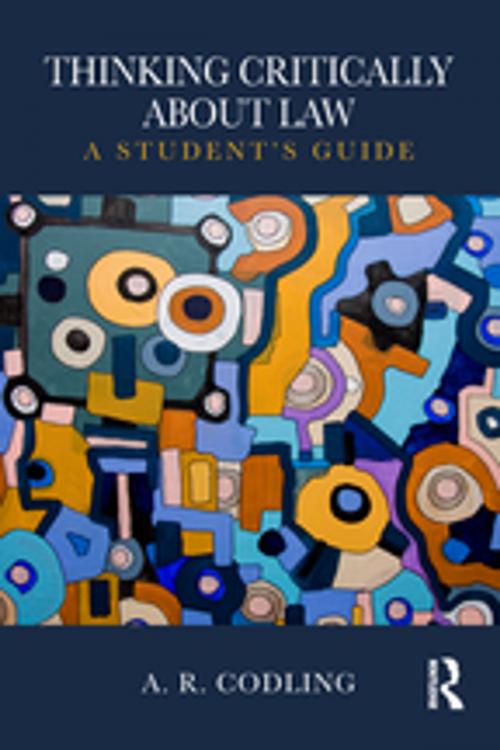Thinking Critically About Law
A Student's Guide
Nonfiction, Reference & Language, Law, Legal Writing, Reference| Author: | A. R. Codling | ISBN: | 9781317298380 |
| Publisher: | Taylor and Francis | Publication: | January 31, 2018 |
| Imprint: | Routledge | Language: | English |
| Author: | A. R. Codling |
| ISBN: | 9781317298380 |
| Publisher: | Taylor and Francis |
| Publication: | January 31, 2018 |
| Imprint: | Routledge |
| Language: | English |
So you’ve arrived at university, you’ve read the course handbook and you’re ready to learn the law. But is knowing the law enough to get you the very best marks? And what do your lecturers mean when they say you need to develop critical and analytical skills? When is it right to put your own views forward? What are examiners looking for when they give feedback to say that your work is too descriptive?
This book explores what it means to think critically and offers practical tips and advice for students to develop the process, skill and ability of thinking critically while studying law. The book investigates the big questions such as: What is law? and What is ‘thinking critically’? How can I use critical thinking to get better grades in assessments? What is the role of critical thinking in the work place? These questions and more are explored in Thinking Critically About Law.
Whether you have limited prior experience of critical thinking or are looking to improve your performance in assessments, this book is the ideal tool to help you enhance your capacity to question, challenge, reflect and problematize what you learn about the law throughout your studies and beyond.
So you’ve arrived at university, you’ve read the course handbook and you’re ready to learn the law. But is knowing the law enough to get you the very best marks? And what do your lecturers mean when they say you need to develop critical and analytical skills? When is it right to put your own views forward? What are examiners looking for when they give feedback to say that your work is too descriptive?
This book explores what it means to think critically and offers practical tips and advice for students to develop the process, skill and ability of thinking critically while studying law. The book investigates the big questions such as: What is law? and What is ‘thinking critically’? How can I use critical thinking to get better grades in assessments? What is the role of critical thinking in the work place? These questions and more are explored in Thinking Critically About Law.
Whether you have limited prior experience of critical thinking or are looking to improve your performance in assessments, this book is the ideal tool to help you enhance your capacity to question, challenge, reflect and problematize what you learn about the law throughout your studies and beyond.















